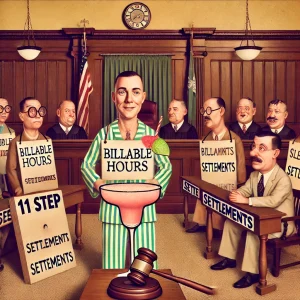Most people my age are familiar with Arlo Guthrie, the musician best known for his 1967 anti-war song, Alice’s Restaurant. Many have also heard of Arlo’s father, Woody Guthrie, the legendary folk singer who created such songs as This Land is Your Land. But few know of Jack Guthrie, Woody’s cousin and Arlo’s second cousin. That’s a shame because Jack was one of the most important country singers of the 1940’s. In his time he was far more commercially successful than Woody ever was.
Jack was born in Oklahoma in 1915, but his family moved to California in his late teens. There he learned to play the guitar and fiddle. Jack competed in rodeo and began singing in bars and clubs up and down the Pacific Coast. In 1937, Woody’s family moved from the Texas Dust Bowl to California, and the cousins teamed up to play music together. Soon they had a radio show on a Hollywood station – the Oke and Woody Show. The show was popular, but it paid no money, and Jack eventually gave it up and took a construction job to make ends meet.
Woody moved to New York City in 1939 where he soon hooked up with political activists and singers like Pete Seeger, but Jack stayed in California and became known as, “Oklahoma’s Yodeling Cowboy.” In 1944, Jack asked some musician friends to help him record Oklahoma Hills, a song Woody had written several years previously and had stated anyone could use. Capitol Records loved the song and gave Jack a seven-year contract based on that recording.
Before Capital Records released Oklahoma Hills, Jack was drafted into the Army and sent to Iwo Jima in Special Services as an entertainer. It was on Iwo Jima that Jack learned Oklahoma Hills had hit the top spot on Billboard’s list of Folk Songs and Blues back in the states.
A problem soon arose. Woody heard Oklahoma Hills on a juke box and contacted Capitol Records, claiming the song was his. Jack and Woody eventually agreed to share the copyright. Then, before being discharged from the Army, Jack was diagnosed with tuberculosis. Jack did not take the issue seriously and continued to write and record cowboy songs.
The popularity of Oklahoma Hills made Jack a hot commodity. Soon Earnest Tubb got Jack a gig on the Grand Ole Opry. However, by the spring of 1947, the tuberculosis was taking a toll on Jack. Jack, who was six feet tall, weighed less than one hundred pounds. The doctors told Jack he was going to die, but this did not alter Jack’s energetic and upbeat approach to the western swing music he loved. His records were selling and Capitol Records wanted all the recordings Jack could provide. Jack did not let them down; he continued recording, eventually turning out more than thirty songs. He proclaimed that because he was going to die, he might as well leave a legacy.
Jack died from Tuberculosis in 1948. Arlo still sometimes plays Oklahoma Hills in concerts.





All We Do Is Move Stuff